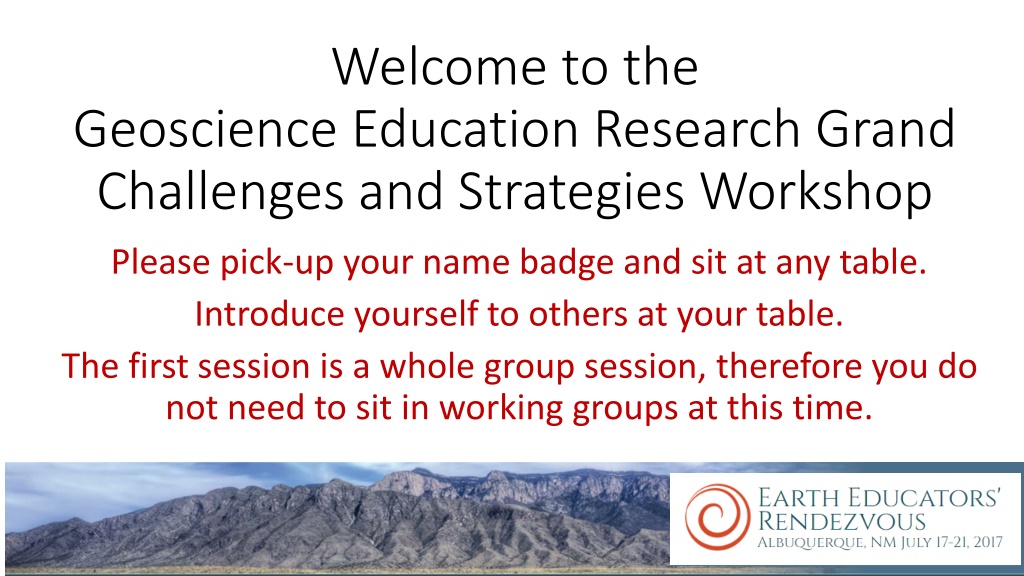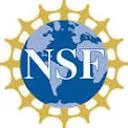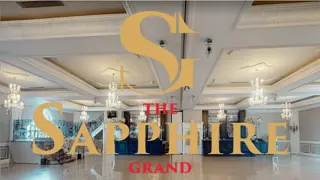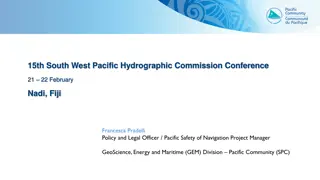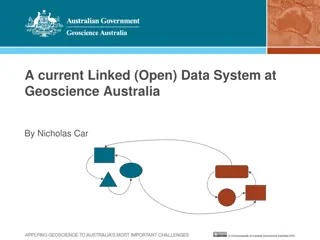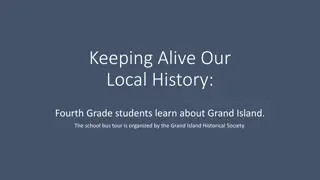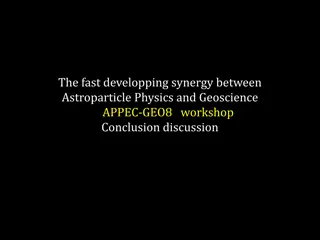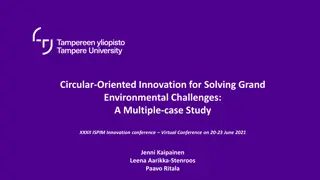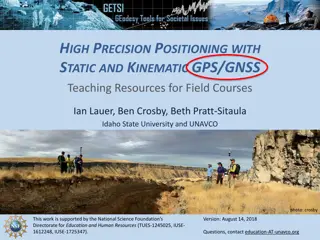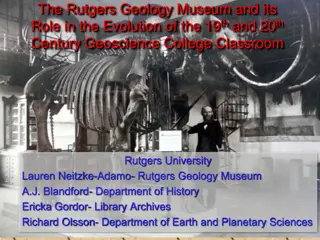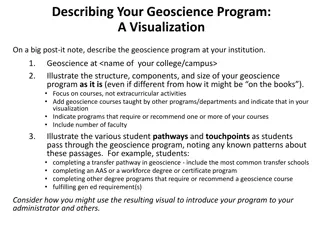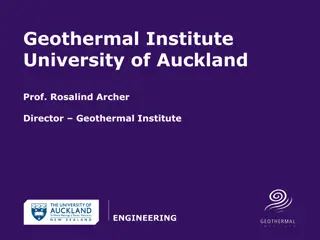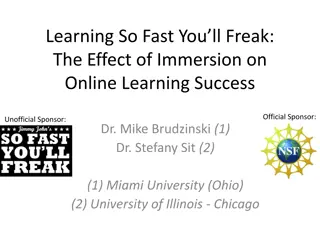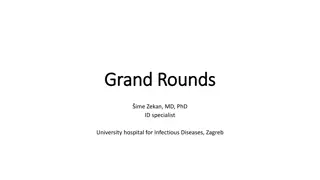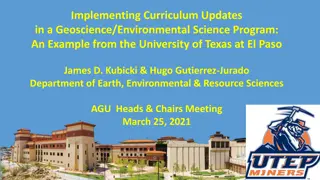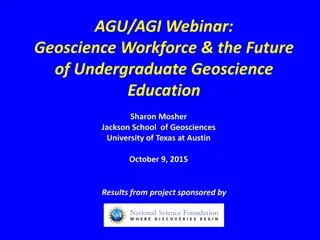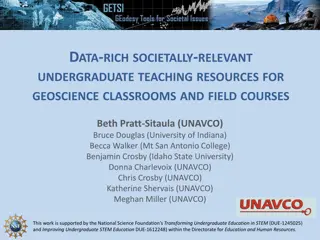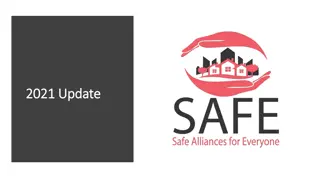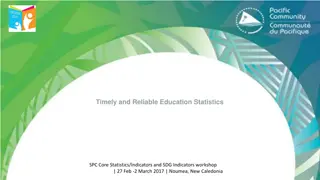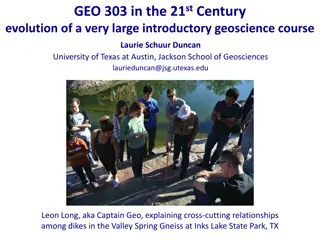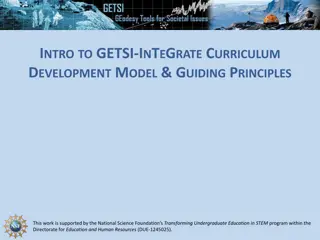Geoscience Education Research Workshop: Addressing Grand Challenges
Geoscience Education Research Workshop funded by the National Science Foundation aims to set ambitious goals for geoscience education research to enhance undergraduate teaching and learning. Participants will identify key themes, prioritize grand challenges, and recommend strategies for rapid achievement in the geoscience education field.
Download Presentation

Please find below an Image/Link to download the presentation.
The content on the website is provided AS IS for your information and personal use only. It may not be sold, licensed, or shared on other websites without obtaining consent from the author. Download presentation by click this link. If you encounter any issues during the download, it is possible that the publisher has removed the file from their server.
E N D
Presentation Transcript
Welcome to the Geoscience Education Research Grand Challenges and Strategies Workshop Please pick-up your name badge and sit at any table. Introduce yourself to others at your table. The first session is a whole group session, therefore you do not need to sit in working groups at this time.
Geoscience Education Research Grand Challenges and Strategies Workshop This workshop is funded by the National Science Foundation project A Framework for Transformative Geoscience Education Research The project goal is to engage the GER community in setting ambitious goals for geoscience education research that will be achievable within ten years and will have significant impact on undergraduate geoscience teaching and learning.
Three Project Objectives: To identify themes that span multiple GER areas to define the spectrum in which GER operates and has the potential to impact undergraduate teaching and learning.
Abbreviation Thematic Working Groups Themes target GER on undergraduate teaching and learning. 1 SolidEarth Students' conceptual understanding of geology/solid Earth science content 2 AtmOcn Students' conceptual understanding of Env/ocean/atmosphere/climate content Themes informed by: DBER Report (Singer et al., 2012) Focus group discussions at the 2015 GER workshop Results from the 2016 and 2017 GER Surveys Wingspread Report (Manduca et al., 2003) Earth in Mind II Synthesis report (Kastens and Manduca, 2012) Lewis and Baker (2010, JRST) 3 K12 Elementary, middle, and secondary Earth science teacher education (working with teachers and future teachers in all settings) 4 Soc Teaching about Earth in the context of societal problems 5 Access/Success Access and success of under-represented groups in the geosciences 6 CogA A - Cognitive domain and problem solving in geoscience courses (e.g., quantitative reasoning, temporal reasoning, spatial reasoning, use of models) 7 CogB B - Cognitive domain and problem solving in geoscience courses (e.g., quantitative reasoning, temporal reasoning, spatial reasoning, use of models) 8 InstrStrat Instructional strategies to improve geoscience learning in different settings and with different technologies (e.g., place-based instruction, teaching large lectures, online instruction) 9 Aff/Meta Geoscience students' self-regulated learning/metacognition and affective domain 10 PD/Change Institutional change and faculty professional development, TA training
Three Project Objectives: To identify themes that span multiple GER areas to define the spectrum in which GER operates and has the potential to impact undergraduate teaching and learning. To articulate and prioritize grand challenges for each theme that are of high interest to the geoscience education researcher and practitioner community. To recommend strategies to address the prioritized grand challenges. These will be strategies that the community views as providing the strongest opportunities for rapid achievement of transformative GER. primary focus of this workshop
What do we mean by Grand Challenges? What do we mean by Grand Challenges ? These are to be articulated as overarching research questions. Example from the Geosciences: Report from the Workshop on Building U.S. Strategies for the 2013-2023 Scientific Ocean Drilling Can access the report from our workshop agenda page. See especially p. 3 for example Grand Challenges and p. 13-15 for example Strategies.
What do we mean by Grand Challenges? What do we mean by Grand Challenges ? Example from Scientific Ocean Drilling Themes Prioritized Grand Challenges for Each Theme
How are Strategies ultimately How are Strategies ultimately (post Example from Scientific Ocean Drilling (post- -workshop) workshop) to be articulated? to be articulated? Brief overview of importance of theme Restatement and prioritization of challenges Recommended strategies based on what is currently known, what type of data is needed, how to get that data, given existing opportunities, and resources needs. See next slide too
How are Strategies ultimately How are Strategies ultimately (post Example from Scientific Ocean Drilling Continuation of recommended strategies based on what is currently known, what type of data is needed, how to get that data given existing opportunities, and resources needs. (post- -workshop) workshop) to be articulated? to be articulated?
What are the working group deliverables for the workshop? For each thematic working group: Prioritized Challenges List of 3-5(?) grand challenges. These are what you see as the most important (highest priority) overarching research questions for your theme. Final list will be reported out in a single powerpoint slide. Justification/rationale for these recorded in an organized way in your workspace. Recommended Strategies For each challenge, identify the most important strategy for addressing that challenge. This will be reported out in a single powerpoint slide. Description of additional strategies, rationale for the strategies and comments on resource needs recorded in an organized way in your workspace.
How will the workshop be organized to facilitate action towards project goals? How will the workshop be organized to facilitate action towards project goals? Workshop Overview Sunday Monday Tuesday Wednesday Grand Challenges Part 3: Finalize & Present. Strategies Parts 2 and 3: Finalize & Present Grand Challenges Part 1: Discuss Grand Challenges Part 2: Add & Refine Working Group Time Strategies Part 1: Discuss Record in Online Workspace Share and Get Feedback Lessons Learned from the Wingspread Workshop/Report Role of Models and Theories in Research Design Thinking Whole Group Sessions Strategically about Assessment Geoscience Education Research and Practice Forum Special Session 4:30-5:45 pm
What happens after the workshop? Next steps in identifying and prioritizing GER grand challenges and recommending strategies to address the challenges Revise based on feedback; Online community survey for additional feedback GER Grand Challenges Town Hall on working group recommendations for community review and feedback Revise based on feedback and on recommendations from theme issue, Draft white paper; Online open comment period Project and working group leaders refine the workshop deliverables This Workshop and Research & Practice Forum Disseminate to all geoscience departments, in the GER Toolbox, and an executive summary as commentary in JGE and elsewhere Revise and finalize white paper GER Grand Challenges webinar GER Grand Challenges survey June 2017 July 2017 August-September 2017 October 2017 November 2017 December 2017 January 2018 April 2017 GER theme issue
Geoscience Education Research Grand Challenges and Strategies Workshop Project Leaders Kristen St. John, Kim Kastens, Heather Macdonald, John McDaris, and Karen McNeal Working Group Leaders Cinzia Cervato, Kim Kastens, Heather Macdonald, Karen McNeal, Heather Petcovic, Eric Pyle, Eric Riggs, Katherine Ryker, Steve Semken, and Rachel Teasdale Session Leaders Julie Libarkin, Cathy Manduca, and Karen McNeal
